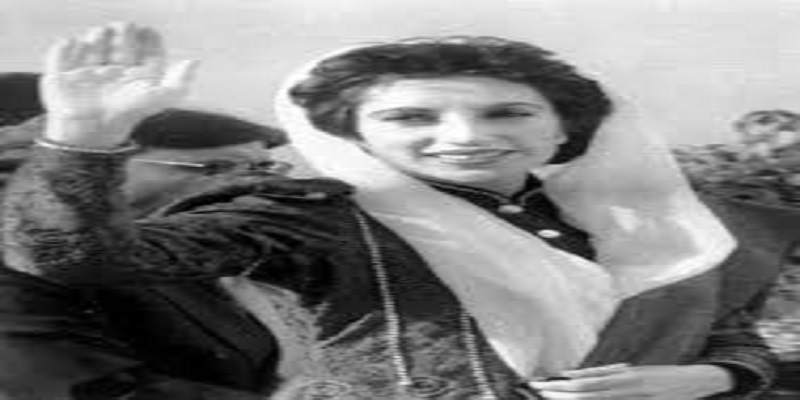Benazir Bhutto Pioneering Leadership in Pakistan's Political Landscape
Benazir Bhutto's first regime as the Prime Minister of Pakistan, from 1988 to 1990, marked a significant chapter in the country's political history. Benazir Bhutto, the daughter of former Prime Minister Zulfikar Ali Bhutto, became the first woman in Pakistan and the Muslim world to lead a democratic government. Her ascent to power was not only a breakthrough for gender equality but also carried the weight of immense expectations and challenges.
The 1988 general elections in Pakistan were a crucial turning point as they followed the end of General Muhammad Zia-ul-Haq's military rule through his death in a plane crash in August 1988. Benazir Bhutto's Pakistan People's Party (PPP) emerged victorious, securing the largest number of seats in the National Assembly. Benazir's triumph was seen as a symbol of the people's desire for a return to civilian and democratic rule.
As Benazir assumed office, she faced a myriad of challenges. The country was grappling with economic difficulties, political instability, and the legacy of military rule. Her government inherited a massive foreign debt, a weakened industrial base, and a struggling economy. Additionally, there were concerns about the military's interference in politics, a longstanding issue in Pakistan.
Benazir's government was also tasked with addressing social issues, such as poverty, illiteracy, and gender inequality. Being the first female Prime Minister in a conservative society, she had to navigate traditional gender roles and prove her capability to lead.
One of the initial priorities of Benazir's government was to address the economic challenges facing the country. Her government implemented a series of economic reforms aimed at stabilizing the economy. These included measures to reduce the budget deficit, control inflation, and attract foreign investment. However, the economic challenges were deeply rooted, and the reforms faced resistance from various quarters.
Benazir Bhutto was committed to addressing social issues and improving the lives of ordinary Pakistanis. Her government initiated several social and educational programs to uplift marginalized communities. Efforts were made to increase access to education, particularly for girls, and steps were taken to alleviate poverty through targeted welfare programs. These initiatives aimed to create a more inclusive and equitable society.
Benazir's government also had to navigate complex regional dynamics. The situation in neighboring Afghanistan, with the Soviet withdrawal and the subsequent power vacuum, posed challenges for Pakistan. Benazir sought to balance relations with the United States, the Soviet Union, and other regional players while addressing internal and external security concerns.
Despite her efforts, Benazir's government faced challenges on various fronts. Political opposition, both within and outside the parliament, questioned the effectiveness of her policies. There were accusations of corruption and mismanagement, and her government struggled to maintain a stable coalition in the National Assembly.
The military's role in politics continued to be a source of tension. The relationship between the civilian government and the military, which had a long history of interventions in Pakistani politics, remained delicate. Benazir tried to assert civilian authority, but the military's influence persisted.
Benazir Bhutto's first term was marked by a combination of achievements and setbacks. Despite her efforts to address pressing issues, the economic and political challenges proved formidable. In August 1990, just two years into her term, President Ghulam Ishaq Khan dismissed Benazir's government amid allegations of corruption and mismanagement. This event marked the end of her first stint as Prime Minister.
Benazir Bhutto's legacy from her first regime is complex. While she broke new ground as the first woman to lead a Muslim-majority country, her government faced criticism for its handling of economic and political challenges. However, her subsequent return to power in the 1993 elections and her continued involvement in Pakistani politics underscored her enduring impact on the country's political landscape.
Benazir Bhutto's first regime in Pakistan was a period of significant change and challenges. Her historic victory as the country's first female Prime Minister symbolized a shift toward democracy after years of military rule. However, the complexities of governance, economic struggles, and political opposition created a tumultuous environment. Despite the eventual dismissal of her government, Benazir Bhutto's legacy continued to shape Pakistani politics, and her role as a trailblazer for women in leadership remains a pivotal aspect of her contribution to the country's history.

